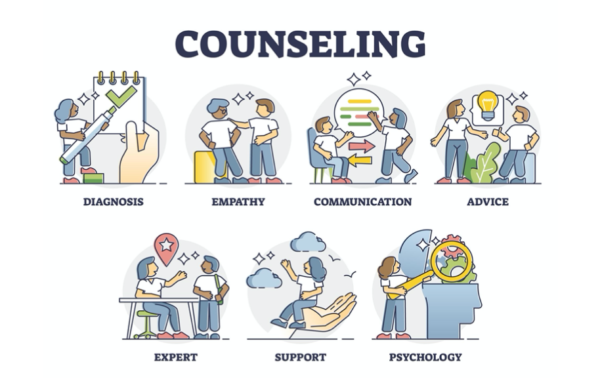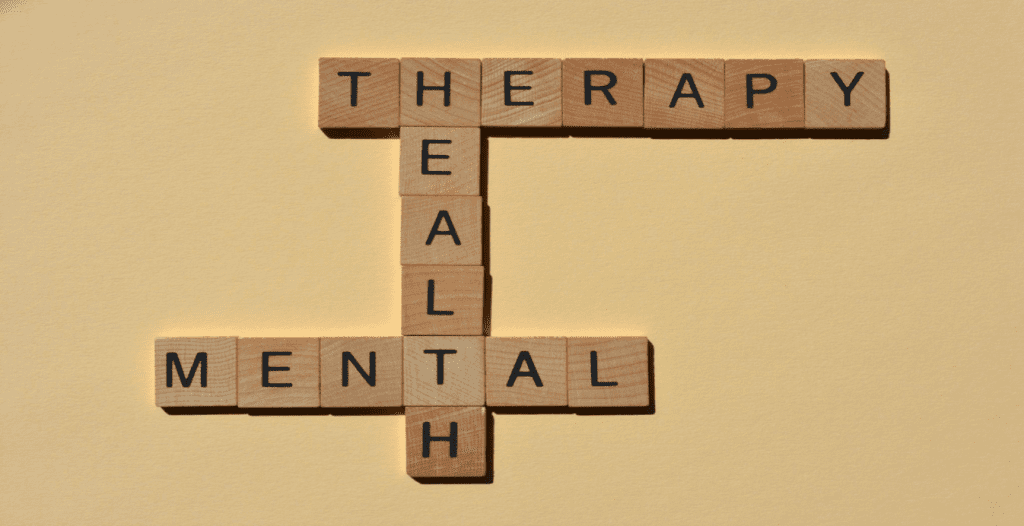Mental health is a hot topic these days and there seems to be a lot less stigma in seeking and receiving treatment in younger generations. Because talking about mental health is somewhat trendy now, there is a lot of language around other activities that people consider their own form of therapy. You’ll hear things like “yoga/running/talking with my friends is my therapy!” and even find mugs and tee shirts proclaiming the same things. There seems to be a trend to tag anything that makes you feel good or better as therapy. This even extends to TV shows. The meaning of these expressions are not lost on me. Running or yoga can help your mind to feel clear, to help your body and your brain feel connected, and elevate your mood, all which can be byproducts of engaging in talk therapy. Talking with good friends can allow us to process feelings more clearly than in our own head, much like many people’s experiences in their therapist’s offices. So are we just focused on semantics if the expression communicates that various activities can create a similar experience to participating in therapy? I think there is value in differentiating between activities that are positive for your mental health and mental health therapy.
Language Matters
I would argue that language matters and gives meaning. Brene Brown captures this when she says “Language is hugely important because language not only communicates emotion, it shapes actually what we’re feeling.” The way that we talk, to ourselves and to others, shapes our emotions and our behaviors. If we joke about exercise or talking to friends holding the same value as therapy, we begin to believe that we are getting the same things out of it.
Certainly the byproducts may be similar, but what is offered in therapy is more than just a better mood and connection to our minds and bodies.
What Therapy Actually Is
Therapy gives us insight into who we are and what has shaped us in this way. Therapy gives us language around a diagnosis, and the clarity that diagnosis can bring to our experiences and our treatment (as opposed to the shame or stigma we often believe about mental health diagnoses). Therapy can be a place to unpack trauma, give tools to navigate relationships, and help us to retrain our thoughts in a way that alters our feelings and our behaviors. Therapy is a place where we acknowledge and learn to manage the symptoms of mental illness and gives us language to describe our journey as well as where we’re headed.

Running or yoga or real talk with friends or whatever else are all coping skills or complements to that deep inner work, but are not a substitute for it. Therapy provides healing and a path forward while these other outlets often act as a distraction or outlet for the negative feelings in the moment. Mental health therapy is facilitated by a licensed master level (or higher) degree person in the field who maintains their license by meeting criteria of continuing education periodically. They are held to a standard of ethics and medical necessity and (should!) provide evidence-based treatments for what you are going through. Does everyone need to do this type of inner work or are healthy coping skills enough to support good mental health? I’m glad you asked.
When to Go To Therapy
There are many valid reasons to go to therapy, and pursuing personal growth can be one of them. Therapy is a tool for growth but should be sought when you are feeling distressed or that your functioning is impaired in at least one environment, such as work, home, or school. Therapy, therefore, is best sought for personal growth in conjunction with some level of personal distress. Therapy is not a hobby. There are lots of tools outside of therapy that also allow us to invest in our personal growth in the form of books, podcasts, classes, and personality tests. There are also many healthy outlets for uncomfortable feelings, such as exercise and creative endeavors. Therefore it’s important to identify what you are actually looking for– are you looking to learn more about yourself for the fun of it or are you wanting to better understand yourself so that you can change unhealthy patterns or relationships? Do you just have “bad days” now and then and you feel able to manage them or are you consistently experiencing the same
symptoms or negative thought patterns? These questions can be used as a lens to consider when it may be time to consider seeking treatment and support. It is important to define the need. There can even be danger when it comes to misclassifying various activities as therapy. Therapy is needed to treat mental health disorders and issues, and a lack of treatment could be similar to putting a bandaid on a cut that needs stitches. This type of misclassification can lead to believing we should be capable of healing our own mental illnesses through a simple activity and can lead to shame and despair when it feels like it’s our fault that we feel this way and “everyone else” can handle it.
In Pursuit of Growth

At Milestones, our theme for this year is growth. What might growth look like for you this year? Is knowing yourself better, changing your negative thinking patterns, managing your moods more effectively, or healing past wounds and trauma on your mind for this next year? Why not contact us and start pursuing your growth and healing today? If that’s not where you’re at today, we celebrate with you all the ways you’re positively pursuing your own growth and caring for your mental health. Let’s stop substituting these activities for therapy and start celebrating the merits and differences of each!

